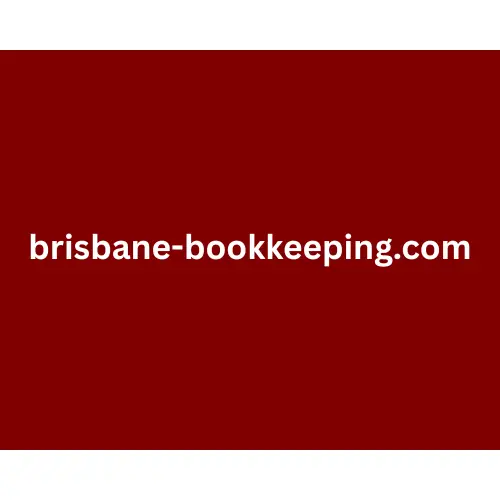Are you a Brisbane business owner feeling anxious about your record-keeping practices? You’re not alone. The Australian Taxation Office (ATO) has been ramping up its scrutiny of business records, leaving many entrepreneurs worried about potential audits and penalties. 😰
But here’s the good news: understanding what the ATO looks for in your Brisbane business records can turn that anxiety into confidence. By mastering the art of accurate and compliant record-keeping, you’ll not only stay on the right side of the tax office but also gain valuable insights into your business’s financial health. 💪💼
In this blog post, we’ll dive deep into the essential business records the ATO expects, explore best practices for compliant record-keeping, and reveal common red flags that might trigger an audit. We’ll also guide you through preparing for an ATO audit and show you how to leverage technology for efficient record-keeping. Get ready to transform your business records from a source of stress to a powerful tool for success!
The ATO expects Brisbane businesses to maintain clear, accurate, and up-to-date records—and falling short can lead to audits or penalties. At brisbane-bookkeeping.com, we help you find local bookkeepers who know exactly what the ATO looks for and can keep your records fully compliant. Contact us or visit our website for more information.
Contents
Essential Business Records the ATO Expects
Income statements and invoices
As a Brisbane business owner, you need to maintain detailed income statements and invoices. These documents are crucial for the ATO to verify your reported income. Ensure that your invoices include:
- Your business name and ABN
- Date of issue
- Description of goods or services provided
- Total amount due, including GST if applicable
Keep both digital and physical copies of these records for at least five years. This practice not only satisfies ATO requirements but also helps you track your business’s financial health.
Expense receipts and documentation
Properly documenting your business expenses is essential for claiming deductions and demonstrating financial transparency. You should:
- Retain receipts for all business-related purchases
- Categorize expenses accurately (e.g., office supplies, travel, utilities)
- Record the purpose of each expense, especially for items that may seem personal
| Expense Type | Documentation Required | Retention Period |
|---|---|---|
| Office Supplies | Receipts, invoices | 5 years |
| Travel | Tickets, accommodation bills, meal receipts | 5 years |
| Vehicle | Logbooks, fuel receipts, maintenance records | 5 years |
Bank statements and financial accounts
Your bank statements and financial accounts provide a comprehensive overview of your business’s financial activities. To meet ATO expectations:
- Reconcile your bank statements regularly with your accounting records
- Keep separate accounts for business and personal transactions
- Maintain a clear audit trail for all financial transactions
Employee payroll records
Accurate payroll records are crucial for both ATO compliance and fair treatment of your employees. Ensure you keep:
- Timesheets and attendance records
- Payment summaries and superannuation contributions
- Tax file number declarations and employment contracts
Asset registers and depreciation schedules
Properly documenting your business assets is vital for tax purposes and financial planning. Your asset register should include:
- Purchase date and cost of each asset
- Depreciation method and rate applied
- Current book value and expected useful life
By maintaining these essential records, you’ll be well-prepared for any ATO inquiries and have a clear picture of your business’s financial position. Next, we’ll explore the accurate and compliant record-keeping practices that will help you maintain these crucial documents effectively.
Accurate and Compliant Record-Keeping Practices

Using ATO-approved accounting software
To ensure your Brisbane business stays compliant with ATO regulations, it’s crucial to use approved accounting software. These tools not only streamline your record-keeping but also align with ATO requirements. Here’s a comparison of popular ATO-approved software options:
| Software | Key Features | Suitable for |
|---|---|---|
| Xero | Cloud-based, real-time bank feeds, payroll | Small to medium businesses |
| MYOB | Comprehensive reporting, inventory management | Medium to large businesses |
| QuickBooks | User-friendly interface, receipt scanning | Sole traders and small businesses |
By choosing the right software, you’ll make tax time easier and reduce the risk of errors in your financial records.
Maintaining digital and physical backups
You should always keep both digital and physical copies of your business records. This dual approach ensures you’re prepared for any situation, including technology failures or physical damage to documents. Here are some best practices:
- Store digital backups in secure cloud storage
- Keep physical copies in a fireproof safe
- Regularly update both digital and physical records
- Implement a systematic filing system for easy retrieval
Implementing internal auditing procedures
Regular internal audits help you catch and correct errors before they become issues during an ATO audit. You should:
- Conduct monthly reconciliations of all accounts
- Review expense claims for accuracy and compliance
- Check payroll records against ATO requirements
- Verify inventory counts and valuations
Adhering to record retention timelines
The ATO has specific requirements for how long you must keep different types of records. Generally, you should retain most business records for five years from the date you lodged your tax return. However, some records may need to be kept longer. By following these practices, you’ll be well-prepared for any ATO inquiries and maintain accurate, compliant business records.
Common Red Flags in Brisbane Business Records
Inconsistent income reporting
When it comes to your Brisbane business records, inconsistent income reporting is a major red flag for the ATO. You need to ensure that all your income sources are accurately documented and reported. This includes cash transactions, online sales, and any other form of revenue your business generates.
To avoid inconsistencies, you should:
- Maintain detailed sales records
- Reconcile your bank statements regularly
- Use a reliable point-of-sale system
- Keep track of all invoices and receipts
Excessive or unusual expense claims
The ATO scrutinizes expense claims closely, especially those that seem disproportionate to your business size or industry norms. You must be able to justify all your expense claims with proper documentation.
Here’s a comparison of acceptable vs. questionable expense claims:
| Acceptable Claims | Questionable Claims |
|---|---|
| Office supplies | Luxury car leases |
| Business travel | Personal vacations |
| Work-related equipment | Home renovations |
| Professional development | Excessive entertainment |
Misclassification of employees as contractors
Misclassifying employees as contractors is a serious issue that can lead to ATO penalties. You need to understand the differences between these two categories and ensure proper classification.
Key factors to consider:
- Level of control over work
- Hours of work
- Provision of tools and equipment
- Method of payment
- Ability to subcontract
Discrepancies between reported income and lifestyle
The ATO may raise questions if your reported income doesn’t align with your lifestyle. This could include owning luxury assets, frequent high-end purchases, or expensive holidays that seem incompatible with your declared income.
To avoid suspicion, you should:
- Keep personal and business finances separate
- Maintain clear records of personal income sources
- Be prepared to explain any significant assets or expenditures
Now that you’re aware of these common red flags, it’s crucial to understand how to prepare for an ATO audit effectively.
Preparing for an ATO Audit
Organizing records chronologically
When preparing for an ATO audit, organizing your records chronologically is crucial. This systematic approach allows you to quickly locate and present any requested information. Here’s how you can effectively organize your records:
- Sort documents by date
- Create separate folders for each financial year
- Use consistent naming conventions for files
- Maintain a digital backup of all physical records
| Record Type | Retention Period |
|---|---|
| Income tax records | 5 years |
| GST records | 5 years |
| Employee records | 7 years |
| Asset records | 5 years after disposal |
Reconciling accounts and resolving discrepancies
Before the ATO comes knocking, ensure all your accounts are reconciled and any discrepancies are resolved. This process involves:
- Comparing bank statements with your bookkeeping records
- Identifying and investigating any inconsistencies
- Adjusting entries as necessary with proper documentation
- Ensuring your profit and loss statement aligns with your tax return
Documenting business processes and decision-making
The ATO may question certain business decisions or transactions. To justify your actions, maintain clear documentation of your:
- Business strategy and plans
- Meeting minutes and resolutions
- Significant financial decisions
- Reasoning behind unusual transactions
This documentation demonstrates your commitment to transparency and compliance.
Seeking professional assistance when needed
While you may handle day-to-day bookkeeping, professional help can be invaluable during an audit. Consider engaging a qualified accountant or tax professional who can:
- Review your records for completeness and accuracy
- Identify potential issues before the ATO does
- Represent you during the audit process
- Provide expert advice on complex tax matters
With these preparations in place, you’ll be well-equipped to handle an ATO audit confidently. Next, we’ll explore how technology can streamline your record-keeping processes.
Leveraging Technology for Efficient Record-Keeping

Cloud-based accounting solutions
In today’s digital age, you can significantly streamline your record-keeping process by adopting cloud-based accounting solutions. These platforms offer you real-time access to your financial data from anywhere, ensuring that your Brisbane business stays on top of its record-keeping obligations.
Here are some key benefits of cloud-based accounting for your business:
- Automatic updates to comply with ATO regulations
- Secure data storage and backup
- Multi-user access for collaboration with your accountant
- Integration with bank feeds for accurate transaction recording
| Feature | Benefit |
|---|---|
| Real-time reporting | Instant insights into your financial position |
| Automated bank reconciliation | Reduced manual data entry and errors |
| Cloud storage | Secure, accessible records for ATO audits |
| Mobile accessibility | Manage your books on-the-go |
Receipt scanning and management apps
You can simplify expense tracking by using receipt scanning apps. These tools allow you to capture and digitize receipts instantly, reducing the risk of lost or damaged paper records.
Automated data entry and reconciliation tools
Automated tools can save you countless hours by eliminating manual data entry. These systems can:
- Extract data from invoices and receipts
- Categorize transactions automatically
- Match bank transactions with your accounting records
- Flag discrepancies for your review
Integration with point-of-sale systems
By integrating your POS system with your accounting software, you ensure that all sales data is accurately recorded in real-time. This integration provides a clear audit trail and helps you maintain ATO-compliant records effortlessly.
With these technological solutions, you’ll find it easier to maintain accurate, up-to-date records that meet ATO requirements. Remember, while technology can greatly assist in record-keeping, it’s crucial to regularly review your data to ensure its accuracy and completeness.
Maintaining accurate and compliant business records is crucial for your Brisbane-based enterprise. By focusing on essential documentation, implementing best practices, and leveraging technology, you can ensure your records meet ATO expectations. Remember to regularly review your record-keeping processes, addressing any potential red flags before they become issues.
As you prepare for potential ATO audits, stay proactive in your approach to record-keeping. Embrace digital solutions to streamline your processes and enhance accuracy. By doing so, you’ll not only satisfy ATO requirements but also gain valuable insights into your business operations, positioning your Brisbane enterprise for long-term success and compliance.
If you’re unsure whether your business records would pass an ATO review, it might be time to get professional support. brisbane-bookkeeping.com connects you with experienced Brisbane bookkeepers who can get your records in order and give you peace of mind. Contact us or visit our website for more information.

